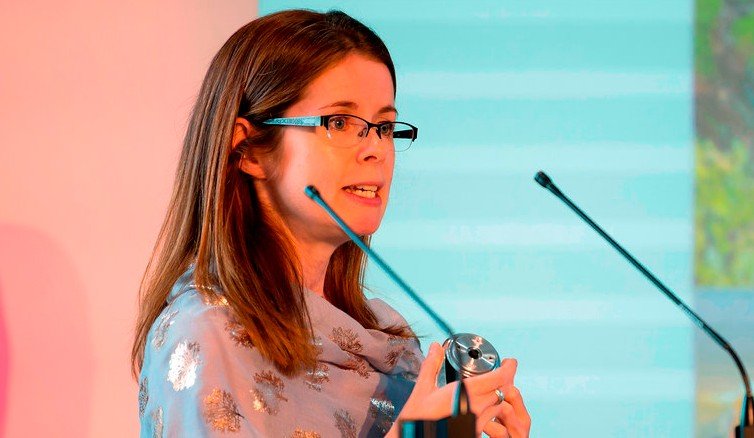Lorraine Whitmarsh: Pioneering Change in Climate Psychology and Social Transformation

Lorraine Whitmarsh is a name renowned in environmental psychology, behavioural science, and climate-change communication. As a leading figure in researching how individuals and societies perceive, react to and grapple with climate change, her work spans academia, public policy and grassroots initiatives. Her contributions illuminate not just what people believe, but how beliefs translate—or fail to translate—into action. This article explores the life, research, impact and relevance of Lorraine Whitmarsh, with a view to understanding why her voice matters now more than ever.
Early Life and Academic Foundations
Lorraine Whitmarsh’s journey into environmental psychology began with academic roots in psychology and social sciences. She developed an early interest in human behaviour and how individuals adapt to change. The foundational belief that humans are not only passive observers of environmental shifts, but active agents in transformation, shaped her path. Drawing from disciplines such as sociology, psychology, environmental studies and communication, she built an approach that is as interdisciplinary as the challenges posed by climate change itself.
Her early academic training laid emphasis on empirical research: how to measure perceptions, attitudes, beliefs, and behaviour. This kind of rigour would later become characteristic of her research publications. She pursued postgraduate work, refining methodologies for assessing public understanding of climate science, attitudes towards energy consumption, transport choices and policy acceptance.
Professional Positions and Leadership Roles
Lorraine Whitmarsh holds the post of Professor of Environmental Psychology at the University of Bath, where she combines teaching, research and public engagement. She is also the Director of the Centre for Climate Change & Social Transformations (CAST), a research centre dedicated to exploring social, behavioural, and policy pathways to climate mitigation and adaptation.
In addition to her university responsibilities, she has served in advisory capacities. She has been involved with national advisory committees, government consultation processes, and climate assemblies, helping to bridge the gap between academic research and practical policy. Her knowledge is sought by parliamentary committees, public bodies and scientific panels who wish to understand the human side of climate policy—what people will accept, what might meet resistance, and how change can be enabled.
Key Research Themes
Public Perception and Communication
One of her most important areas of research focuses on how the public perceives climate change: what they believe about its causes, what risks they see, and what actions they consider feasible. She has explored how different messages, framed in different ways, affect people’s willingness to change behaviour. She emphasises clarity, transparency and fairness, arguing that communication must avoid alarmism while giving enough urgency and moral weight.
Behaviour Change: Transport, Energy, and Consumption
Lorraine Whitmarsh’s work often zeroes in on everyday climate-relevant behaviour: how people heat their homes; how they travel; how they consume food. She investigates what barriers—practical, psychological, economic—prevent people from acting in climate-friendly ways. Simultaneously, she researches what motivates change: social norms, infrastructural support, financial incentives, identity, values. Her findings highlight that changes in infrastructure (for instance, public transport, renewable-energy availability) are as important—or more important—than appeals to personal responsibility alone.
Moments of Change & Life Transitions
Another strand of her work involves “moments of change”—life transitions like moving house, retiring, changing jobs, having children. These critical points offer opportunity windows when individuals may reassess patterns and adopt new behaviours. She argues that policies and interventions timed around such life transitions can be especially effective in encouraging sustainable practices.
Equity, Justice and Policy Acceptance
Lorraine Whitmarsh does not treat climate behaviour as a neutral scientific concern but situates it within questions of fairness. Her research shows that perceptions of fairness—whether climate policies are just, whether burdens are shared equitably—are central to whether people accept or resist them. Policymaking must consider social justice: how climate burdens are distributed, who gains, who loses, and how this affects different social groups.
Major Projects and Contributions
Centre for Climate Change & Social Transformations (CAST)
Under her leadership, CAST has developed numerous collaborative projects. CAST works not only in academic research but in designing, testing and evaluating interventions. It draws on multidisciplinary methods—surveys, experiments, qualitative interviews—and works across geographical scales: local communities, national settings, global comparisons.
Role in IPCC and Climate Assemblies
Lorraine Whitmarsh was a lead author for the Intergovernmental Panel on Climate Change (IPCC), contributing to the Working Group that assesses vulnerability, adaptation and risk. Her role helped shape global assessments of how human societies perceive and respond to climate risk. She has also been involved in climate assemblies, which bring citizens into deliberative processes to inform climate policy. Such work underscores public inclusion in decision-making.
Selected Achievements & Honours
- She was awarded the MBE (Member of the Order of the British Empire) in the United Kingdom in recognition of exceptional services to social research in climate change, energy and transport.
- She is highly cited in academic literature, ranking among top scholars in climate psychology and behaviour change.
- Her scholarship has influenced policy debates, notably in shaping how governments think about net zero, energy policy, transport strategy, and public engagement in environmental policy.
Publications and Influence
Lorraine Whitmarsh has published extensively in highly respected journals. Her work often addresses both theory and practice: the psychological underpinnings of behaviour, and interventions to promote sustainable outcomes. Her book Engaging the Public with Climate Change: Behaviour Change and Communication is widely used in courses, by policy analysts, educators. Her peer-reviewed papers explore, among other topics:
- How message framing (emphasising gains vs losses, public vs private benefit) influences support for climate policy.
- How social norms and identity play into behaviour (for example, travel choices, diet).
- How infrastructural constraints (cost, access, physical geography) limit or foster sustainable behaviour.
Her influence extends beyond academia: governmental reports, media interviews, public talks and workshops, where she translates research into accessible insights for the broader public.
Relevance in Today’s Climate Context
Addressing Climate Misinformation
In an age of misinformation, polarised debates and competing interests, Lorraine Whitmarsh’s work on communication is more relevant than ever. She emphasises that improving understanding does not simply mean conveying facts, but crafting messages people can trust and connect with personally.
Achieving Net Zero Goals
Countries around the world have set net zero targets. Realising them depends not only on technology and infrastructure but on people changing behaviour—how they travel, use energy, consume goods. Her research offers insight into which levers work: whether financial incentives, regulatory frameworks, or social norms.
Climate Justice and Equity
As the climate crisis heightens inequality—within and between countries—research such as Whitmarsh’s helps ensure policies are designed fairly. If climate policies ignore fairness, they risk backlash, mistrust or non-compliance. By integrating justice into climate policy design, more durable and acceptable solutions become possible.
Engaging the Public Effectively
Public support is critical for sustainable and lasting climate policy. Whitmarsh’s work shows that engagement must be two-way: listening as well as talking. Citizens need to see their perspectives reflected in policy, and understand what their role can be. Deliberative formats like citizens’ assemblies, or interventions timed with life transitions, are key mechanisms.
Challenges and Criticisms
While Whitmarsh’s work is highly regarded, there are inherent challenges in her field:
- Measuring long-term behaviour change is difficult. What people say they will do, and what they continue to do months or years later, can differ greatly.
- Scalability of interventions. Strategies that work in small studies or specific locales may encounter barriers when applied broadly.
- Balancing urgency with psychological well-being. Communicating enough risk to motivate, without overwhelming or causing despair, is a delicate line.
- Addressing structural constraints. Behavioural change is necessary but insufficient if infrastructure and policy do not support people wanting to make sustainable choices.
Future Directions and Prospects
Looking ahead, research by Lorraine Whitmarsh and her collaborators is likely to explore:
- How digital technology and social media can be harnessed to support behaviour change, but also how they spread misinformation.
- More robust methods for evaluating long-term impact and embedding sustainable behaviour in institutions and culture.
- Greater attention to intersectionality: how age, income, geography, culture intersect with climate behaviour and policy acceptance.
- Policy design that is adaptive: responsive to changing climatic realities, socio-economic shifts, and public sentiment.
Conclusion
Lorraine Whitmarsh stands at the intersection of psychological inquiry, social policy and climate action. Her work reminds us that addressing climate change is not just about engineering and economics; it is about understanding people—their fears, hopes, values, constraints and motivations. As global and local communities grapple with the urgency of climate crises, her insights offer guidance on how to move from awareness to meaningful, equitable action. Understanding her contributions is not only enlightening—it is essential for anyone serious about crafting climate solutions that are effective, fair and sustainable.



